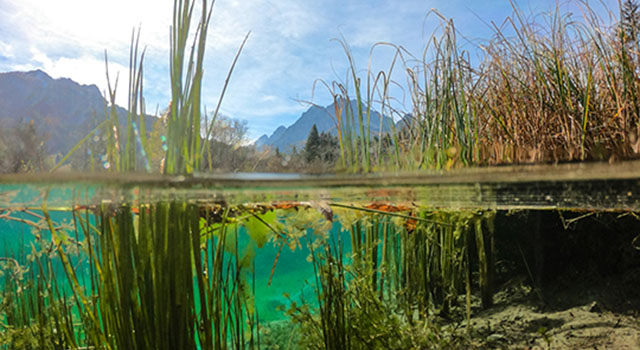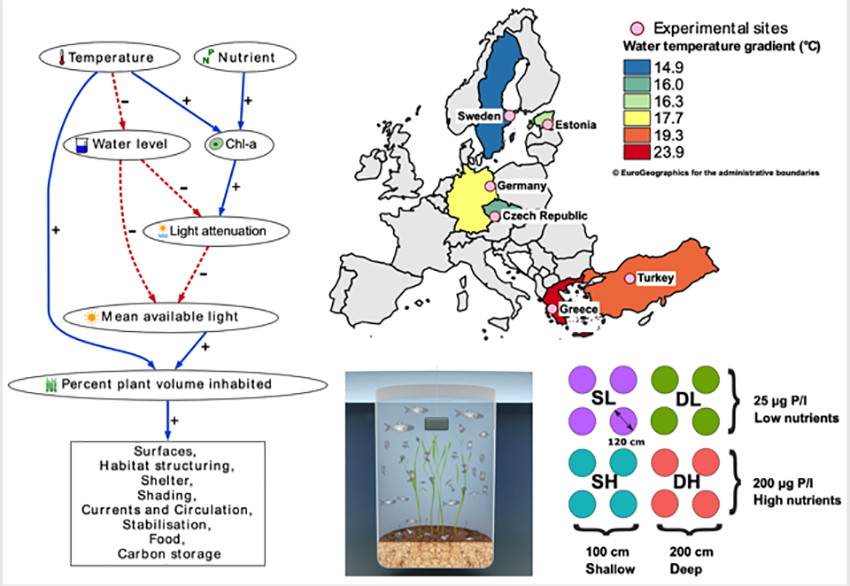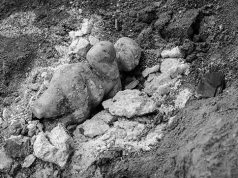
The scientific article entitled “Impact of nutrients and water level changes on submerged macrophytes along a temperature gradient: A pan-European mesocosm experiment,” co-authored by Prof. Meryem Beklioğlu from METU Department of Biological Sciences and Ecosystem Research Center, and Zeynep Ersoy, Tuba Bucak and Eti Levi from the Limnology Laboratory together with Prof. Erik Jeppesen who is carrying out research at METU with Prof. Beklioğlu within TÜBİTAK 2232 program, is published in “Global Change Biology”. “Global Change Biology” is a monthly journal with a high impact factor, which promotes a new understanding of the interface between biological systems and all aspects of environmental change that affects a substantial part of the globe.
Shallow lakes constitute the largest proportion of the world’s lakes. Aquatic plants (macrophytes) play a key role in the functioning and structuring of these ecosystems. Ongoing climate and land-use change are altering simultaneously temperatures, nutrient runoff, and water levels, which are the main drivers of macrophyte growth. Under EU7th Framework Program REFRESH (Adaptive strategies to mitigate the impacts of climate change on European freshwater ecosystems) project, to elucidate the effect of climate on macrophyte growth, we conducted a controlled and highly synchronized Pan-European mesocosm experiment in six countries along a temperature gradient (Sweden, Estonia, Czech Republic, Germany, Turkey, and Greece) with contrasting depths (shallow vs. deep) and nutrient levels (mesotrophic vs. eutrophic conditions).
Results showed that positive temperature effects on macrophytes are highly dependent on nutrient status and water level. Under eutrophic conditions, evaporation-driven water-level change, impacting underwater light-conditions, can act as a switch for whether macrophytes maintain dominance or are out-competed by algae. Thus, water-level change can compensate for the negative effects of eutrophication by enhancing light availability. However, extreme water level declines will likely decrease the macrophyte biomass, thus their functional role in the shallow lakes.
You can visit https://onlinelibrary.wiley.com/doi/full/10.1111/gcb.15338 to reach the article published with open access policy.
Graphical abstract of the article is below:








